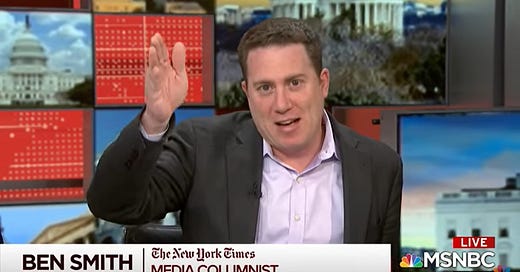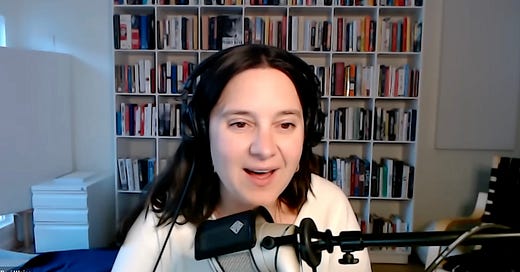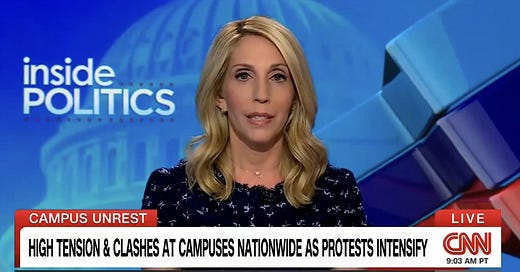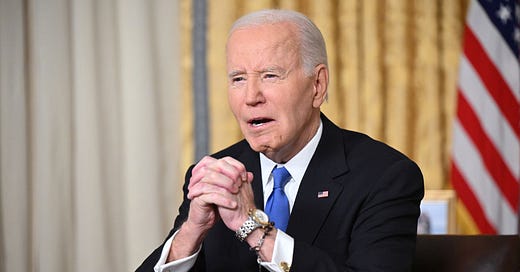
Ben Smith, the former editor of BuzzFeed News, is now a media columnist for the New York Times. It sounds like a great job, and I would love to have it.
Smith’s career and current role is, I think, an interesting case study in some of the intermingling tensions across media: between those who control power at its largest institutions and those who do the work, and between the two schools of thought as to how that work should be done. Both of these battles have played out in the pages of the Times recently, with the publication of Senator Tom Cotton’s op-ed calling for the use of military force against protesters opposing police brutality, and in one of Smith’s own columns, which focused on the obvious wealth disparity between the rank and file of the modern media and the bosses who profit from that labor.
Smith’s piece was especially interesting because it included a token acknowledgement of his own place in the conversation: he has spent most of his career moving from one staff job to another, and for more than half a decade, he served as the boss of an ambitious, unstable news organization that went through a contentious unionization process and many rounds of layoffs while producing top-caliber work. To his credit, Smith is far more receptive to criticism than any other top media boss I’ve met, so a couple of weeks ago, I asked if he would chat with me more about these tensions and where he sees himself in the larger media conversation. Here’s our conversation, edited, of course for clarity and length.
What do you think is the defining storyline or trend in media right now? What’s the big story for you?
I think what the coronavirus crisis did, and in some ways what the wave of Black Lives Matter protests have done, is to accelerate a bunch of things that were already happening. I mean, I think you can see it most clearly on the business side — the shift to subscription, the collapse of the advertising business. It doesn't feel this way because digital media companies are having a tough time, but analog media, which was collapsing already, it's collapsing faster. People's consumption is shifting to digital faster. A lot of that stuff won't go back or won't go back exactly the same way, from television to movies to news. And I think it's true culturally, too, right? Like there's this huge shift generationally and who holds power in this country and who controls the conversation [is] changing really fast too.
I think part of this tension that we're talking about, though, is that that shift in power is still not really reflected in media. The people, like you wrote in your last piece, who are in control of media are feeling these effects to a far lesser extent than the massive amount of the workforce.
I would see the firing of a bunch of senior executives in [recent] weeks as a sign that power is shifting.
That’s fair.
And I also think that if you talk to people who are in the sort of mid-senior ranks of a lot of these news organizations, they have different views than their bosses on all of these issues.
Where do you see yourself in that divide? Because you've written about it yourself at the Times — of this sort of ideological split between the old notions of impartiality at all costs and preserving the status quo as it's existed.
I guess first of all, I, I don't think this is as generational as people sometimes cast it as. These arguments have been going on for a long time. If you want to see a previous generations version of this argument, Linda Greenhouse, who covered [the] Supreme Court for the New York Times, published a memoir recently about having marched in an abortion rights march, and taking tons of flack for it. And there's a narrative now that she had apologized and was disciplined, but in fact that never happened. She never apologized, and doesn't think it was the wrong thing to do. I think it's hard for me to answer where I stand if I don't quite know what the question is. What are you asking [about] where I stand on?
The ideological split, as I see it, between the old notion of impartiality at all costs, and the idea that journalism’s purpose is to confront power, and that people should be allowed to exercise opinions in that space as long as their reporting is still fair.
When you're running a newsroom, you're not making big ideological judgements and pronouncements all day. I really have spent my whole career as a reporter and I think much more tactically. The job fundamentally is to expose things that people don't want exposed, and I think there are different ways to do that. If you think about how Glenn Greenwald gets like the biggest scoop of the last 20 years, he got it by broadcasting his views on surveillance incredibly, incredibly clearly. And essentially was a maypole by which this disgruntled spy brought these secret documents. But is it Maggie Haberman’s job or obligation for when she covers the White House? Like, I care about the story. I want to read the story. I don't care that much about the tactics. I think that sometimes for reporters, it's more valuable to see these as tactical questions rather than moral questions. Like our job is to bring people information and there are different ways to get there.
That’s interesting. It seems to me, though, that at some papers —
And there are different roles for different institutions also in that. I was talking to Wesley Lowery about this, like things that get interpreted as profound ideological statements are pretty banal. When I was at BuzzFeed, Shani Hilton and I, but mostly Shani, wrote this standards guide that was sort of important for us in the moment. There’s a line in there that not every story that not every story has two sides. Um, and that we don't see every story is having, you know, kind of two equal ideological facts. Some people were like, wow this is so great, some people were like, “there’s real bias there,” but honestly, it’s pretty banal.
I understand what you're saying about this divide not necessarily being as generational, but it does seem to be a class divide, I think, between the sort of working class in a journalistic institution and the management class.
I mean, I don't know if management is a class, 'cause I do think that a lot of the folks who are most thoughtful and outspoken on the side of the writers right now are going to wind up running these newsrooms.
Interesting. Ok. What do you see as the obstacles to those people --
You're starting to see people who, you know, spent their careers thinking deeply about this stuff and to kind of come to pretty different conclusions than a previous generation of editors are now running stuff.
I don't want to hammer you too hard on like, trying to force you to pick a side here, but I'm just sort of wondering where you feel —
You know, this is what happens when you're born in like 1976. I can, like, relate to and really connect with where the editors of a previous generation are coming from. I also relate very strongly to, and really understand where a lot of younger journalists are coming from. And have wound up myself without — I mean this is probably why I’m a reporter and not a critic, trying to understand these points of view. I guess my deepest beliefs are about the role of reporting and exposing things people don’t want known.
That makes sense. I think we’d agree on that. Do you think that that background makes you better situated to kind of cover this movement in journalism? Or is it kind of a conflict for you, that you are stuck in the middle between these two things and you don't necessarily have the perspective on it that someone who came up in an industry 10 years after you does?
I'm not sure it's a conflict, it's a specific perspective. I mean I think — sometimes to a fault — when I was running a newsroom I always identified very strongly with reporters. Like I’d never had a management job — I once had an intern, before I started at BuzzFeed, but I’d never been an editor.
I didn't have the experience probably because even in that moment, I was at Politico, which was insulated by the kind of “Washington economy,” from the Great Recession. I spent a lot of time in collapsing newsrooms — [newsrooms have] been collapsing before the Great Recession. I certainly saw that generation of just kind of — slow and stately and miserable decline of the newspaper business. Soon after I started at the Indianapolis Star was the day that they announced they were shutting down the Indianapolis News, the afternoon paper. And it was like, all right, I guess this is how the newspaper business works. They’re shutting things down. Nobody who's still working in this business doesn't have a lot of experience with its uncertainty. But I do come with a certain perspective, a specific set of blind spots. I think everybody does. And I think the best you can do is just report, so that’s what I’m trying to do.
Are you a News Guild member at the Times?
No.
How does that position, not being in the Guild, and your nebulous role inside the institution, affect your relationship with your colleagues, and how do you see your role in respect to your colleagues? Are you functioning sort of as a public editor, trying to be hands off, or do you feel like you're really kind of in the trenches with them?
I wish I could say I felt in the trenches. I’m just so new to the institution that I, that I'm, you know, that I'm still learning my way around it. Janet Malcolm has that incredible essay about how the core act of journalism is betrayal, and being a media reporter is particularly complicated in that way. 'Cause you're reporting on your, your, uh, friends and colleagues. I'm trying both not to be a horrible asshole to my colleagues and to report on the Times the way you would report on any other institution. Which is fundamentally complicated and messy. It’s an inherently messy position. I’m not the public editor. I loved Margaret Sullivan’s work, I thought she did an incredible job. She did have the quality of not giving a fuck, which is hard.
And I think, you know, the problem is like, what is more compromising than being employed by the institution? Like you are obviously massively, massively compromised. And my own view is that there are many great critics of journalism who do not work for you and you should really listen to them and engage them. The notion that you hire a pet one is almost like a PR move. It’s like when the company hires the law firm to do an internal investigation. That’s been my skepticism of having a public editor.
I do think that there's something about the culture of some of these institutions, where a public editor can get answers to questions. And there's sort of an expectation of access that a public editor would get that’s valuable, but it’s not a job that I would have taken. It sort of seems like the most complicated and painful aspects of my job and only those aspects.
it's interesting that you talk about the compromised position of a media reporter, because this is a big sort of battle that I faced personally, and a lot of other reporters in similar positions at some of the digital media outlets, of whether or not they were going to permit reporting on themselves. I think, I think you're right in one respect that it is obviously a conflict and a compromising position, but to me it always seems like reporting in spite of that compromise was inherently… not necessarily more valuable than external criticism, but — do you think that internal criticism is vital?
In the great Gawker tradition. I mean, it can be great. But there are times when it can be kind of ridiculous, right? Where you're sort of creating your own news and reporting on it. Like it's a form of, it's a form of corporate vertical integration.
I think this is a complicated, messy business it is one of the many things that can be great, but if I really, really wanted to know what was happening inside, um, you know, the Discourse Blog, I would probably hire a reporter who is not on the payroll of the Discourse Blog to figure it out for me. Not that you wouldn’t try to do a good job!
Do you think the Times engages with external critics in a meaningful way?
Sometimes more than others, I would say. I dunno. I’m new to the Times. I think to the degree that I’m going to piss off my coworkers I’d rather do it in my own column. Much less my bosses.
What separates your role from someone like Marc Tracy? What’s the difference between media columnist and media reporter?
You’d sorta have to ask the Times. I guess it’s that I get to write with more voice and bringing, like, a real personal perspective based on the fact that I was running BuzzFeed for the past 8 years into the column. One of the many reasons that the Times Op-Ed page blew up is that… there’s not some bright line.
I think that these organizations sometimes, like, think that people should be familiar with their org charts. It's like, “No no — you may have noticed the tiny little type on top of this article or the different font, that means that this is a provocative proposal from a U.S. senator and this one is a news report.” And no one outside the newsroom is familiar with this. It’s hard to say “oh that was a different department.” I think there’s a pretty good case, that if the pretty sophisticated members of your audience aren't catching on to distinctions that you think are real maybe you shouldn’t be drawing those distinctions.
So are you saying that you’d like to see less of a firewall at the Times between reporting and opinion?
There’s a genre that the Times calls “news analysis” and a genre that they call “reported opinion” that kind of blend together. It’s not really my call. I think part of what they’re now trying to do is rethink, OK, what are these categories? And by the way, what’s an unsound editorial?
HuffPost stopped publishing blogs because I think they felt like the ones that got traffic are kind of the worst ones, and we end up getting defined by our worst content, and our journalists who we are paying to do high quality stuff are having their work defined and overshadowed by blogs. And I think that in some ways applies to op-eds too.
Maybe there are sort of branding ways to solve that. Maybe the piece is published over a giant image of Tom Cotton’s face on a different website or something?
There’s also an economic thing here. Opinion is cheaper. There’s a lot more news per dollar in opinion. I actually don’t know what it does for subscription conversion.
Do you think it’s the duty of an opinion side of a paper to make sure that the blogs that they’re publishing are good ones?
Oh yeah. Well, I mean, sometimes you can publish something that’s very good but very provocative and divisive. I think that these organizations exist as unitary brands on the internet, and that is a fact that all the people who run them, and the people who work there, have to reckon with.
This blog is part of our interview series, Discourses. To read all of our interviews, click here.














What's striking to me is just how far away ostensibly "neutral" news organizations really are from neutrality, even if it's not conscious or intentional. Every time the NYT or WaPo publishes a story with a headline that references a "false claim" from Trump, or a protester who "was struck by a police vehicle" or a "debate" about climate science, they're immediately putting the reader into a headspace of approaching what they're about to read as a debate with two sides, when it isn't one.
Trump didn't make a "false claim." He lied.
The protester wasn't "struck by a police vehicle." They were assaulted by a LEO.
And the only "debate" about climate science is whether or not there's still enough time to get a reacharound before we're finished being fucked.
The fact is that the mainstream media can't objectively report facts about political figures without softening the language enough to appease Certain People, and I haven't seen any widely-consumed medium even take an incremental step or two in the right direction in the Trump era. In fact, I'd argue it's gotten, and is getting, much worse.
My favorite interviews are the ones where a source says three paragraphs at a time without letting the reporter finish a sentence